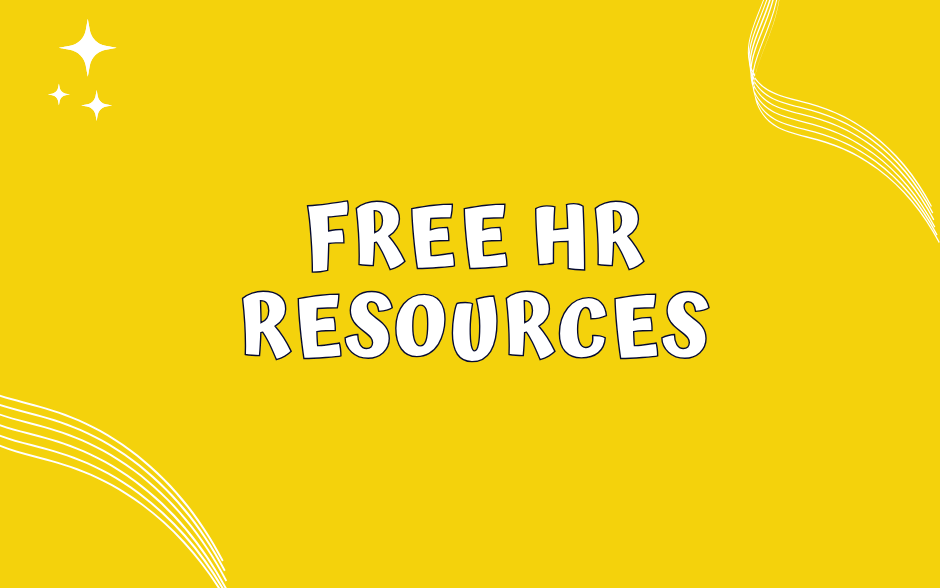How to Spot the Signs of Employee Depression 💔

This is a guest blog, written by Kayleigh Frost from Health Assured - the UK and Ireland's most trusted independent health and wellbeing provider, making a positive difference to over 15 million lives.
What is Depression?
Depression is a common and serious medical illness that negatively affects how you feel, the way you think and how you act.
An estimated 3.8% of the population are affected, including 5.0% among adults and 5.7% among adults older than 60 years. Depression affects almost one in every five adults, at least once in their lifetime, according to the ONS.
When these are the numbers we’re facing, it’s highly probable some of your employees are going through (or will have) suffered from depression.
As you might know, protecting the health, safety, and welfare of your staff is a legal duty. And this also includes their physical and mental wellbeing.
So, it’s both a legal and moral duty to spot the signs of depression in your workplace.
In this blog, we will cover more on what depression is, the laws on mental health, and how to help employees suffering at work.
What are the signs of depression?
There are so many signs which can lead to a depression diagnosis. People may suffer from a couple of symptoms. Or experience only one but on an intense level.
Over the years, medical professionals have discovered all kinds of symptoms for depression. Most can be grouped into three–physical, psychological, and social depression.
Physical symptoms
Physical symptoms are found in a person’s presence, behaviours, or characteristics.
Some examples include:
- Weight fluctuation.
- Lack of energy.
- Moving or speaking slower than normal.
- Hormonal changes (in all genders).
Psychological symptoms
Psychological, or ‘cognitive’ symptoms are probably the hardest to spot. These levels vary drastically and can be hard to recover from–in the short and long term.
Some examples include:
- Low moods.
- Feeling sadness.
- Lack of motivation.
- Having self-harmful thoughts.
- Feeling numb.
Social symptoms
Social symptoms (as the name suggests) are influenced by a person’s societal environment. These symptoms are a mixture of the previous groups, and can lead to:
- Losing interest in hobbies and pastimes.
- Having trouble holding down relationships.
- Avoiding social events (in both professional and personal lives).
Other types of depression
Some different types of depression which are so significant, they form their own categories. These include:
Bipolar Disorder
Bipolar disorder was previously known as manic depression. It’s a mental health condition that presents extreme feelings.
Moods can ‘swing’ from one emotion to another; resulting in very deep and embedded emotional states.
The most common symptoms of bipolar disorder include experiencing episodes of depression, hopelessness, and mania (extreme highs).
Seasonal Affective Disorder (SAD)
This form of depression comes and goes depending on seasonal changes. Most people suffer from SAD during the winter, but it can be experienced during the summer seasons as well.
The main symptoms of seasonal affective disorder include, a lack of energy, persistent sadness, and sleeping problems.
Post and pre-natal depression
Nearly one in every ten pregnant people have experienced some form of prenatal or postnatal depression. The full capacity or condition will vary, depending on the individual and their pregnancy stage.
Common prenatal depression symptoms include excessive worrying about giving birth, lack of energy, and insomnia.
With postnatal depression, people might experience difficulties in bonding with the new baby; as well as withdrawal from others around them.
Psychotic depression
People may be diagnosed with psychotic depression if they are suffering from extreme or severe levels of sadness.
Some of the most common psychotic symptoms include hallucinations (seeing or hearing things that aren’t physically there) and delusions (believing things which aren’t necessarily true).
What are the laws on managing depression in the workplace?
In the UK, there aren’t specific employment laws or regulations on managing depression.
However, under the Equality Act (2010), a mental health illness (like depression) can legally class as a disability.
This is only if the condition:
- Lasts or will last at least 12 months.
- Effects your ability to perform daily tasks.
- Negatively impacts daily life in the workplace.
All employees are legally protected from discrimination, harassment, or victimisation against their health condition.
Is Depression a type of Disability?
It certainly can be if an employee suffers from a more severe condition. This would need to be a form of depression that has significant effects on an employee’s daily life or is medically recognised, such as clinical depression, bipolar disorder, or postnatal depression. Often it's been going on for a period of time, often 12 months or longer.
The Equality Act 2010 also says it’s illegal to treat employees with mental health conditions less favourably than others. Reasonable adjustments must be made for them, whether it’s making their workload or working environment more manageable or providing them time to seek help with their mental health. If their mental health condition causes them to have time off work, their job must be kept open for them when they return.
If an employee suffers from a mild form of depression, such as seasonal affective disorder, they probably won’t be considered to have a disability. But you should always seek legal advice for your specific situation.
How to help employees suffering from depression
Dealing with depression in the workplace can be a tough act. You might think you aren’t qualified enough, or it’s going beyond your remit as an employer.
However, all businesses have a legal duty of care for employee wellbeing. And this includes protecting their physical, mental, and emotional health.
Remember, you are expected to care for them–not completely cure them!
Let’s discover how to help employees suffering from depression in the workplace:
Offer mental health services
One of the best things to do for employees suffering from depression is offer mental health help. These can be external services or referrals to GPs, health practitioners, and even therapists.
Alternatively, you can provide internal support, via apps like Employee Assistance Programmes. They let employees gain access to additional mental health support, advice, and guidance. Allow them to fully understand their condition and manage it whilst performing at work.
Keep open communication
For those suffering from depression, you can easily provide support through open communication. Remember, this is vital for assuring employees they don’t have to suffer in silence or on their own.
Schedule regular meetings or informal catchups with the employee. You can run the meetings yourself; or obtain further assistance from counsellors or occupational health officers.
Discover which route the employee would prefer beforehand. It’s a beneficial way to keep on top of concerns they may face during their work.
It’s also crucial to ensure these spaces are fully confidential and safe. This’ll allow employees to open up about their condition with ease.
Provide reasonable adjustments
It’s your legal and moral duty to provide reasonable adjustments to employees suffering from health conditions.
It’s valuable to identify what struggles they’re facing and how you can reshape work practices to suit their needs.
These changes can include offering flexible working, quiet areas, or additional breaks. For bigger changes, you might decide to alter their contractual terms–protecting their legal rights and yours.
The cost of mental health issues for Employers
According to a 2022 report by MFHA & Deloitte, poor mental health has an impact on employers’ costs. Mental ill health costs UK employers approximately £56 billion each year
The estimated total annual costs of absenteeism, presenteeism (attending work while ill, and so underperforming or being less productive) and labour turnover have increased by 25% since 2019, reaching an estimated annual total of £53-56 billion in 2020-21 (£43-46 billion in the private sector and £10 billion in the public sector).
The largest of the three categories of cost is presenteeism, but the overall increase in total costs is attributable to higher turnover, with more respondents saying they had left their job in the previous year or intended to do so in the next 12 months, for mental health or wellbeing reasons.
Deal with the signs of depression head on
Most employees might have concerns about managing both their health conditions and work obligations.
As an employer, you need to make sure they are fully aware of support and guidance that’s available to them.
By identifying the signs for depression, you’ll be able to protect employee wellbeing. And it’s this that’ll grow performance, production, motivation–and business success.
Helplines
- Mental Health NHS Helpline
- Samaritans Helpline
- National Suicide Prevention Helpline
- Health Assured
- Rehab 4 Addiction






